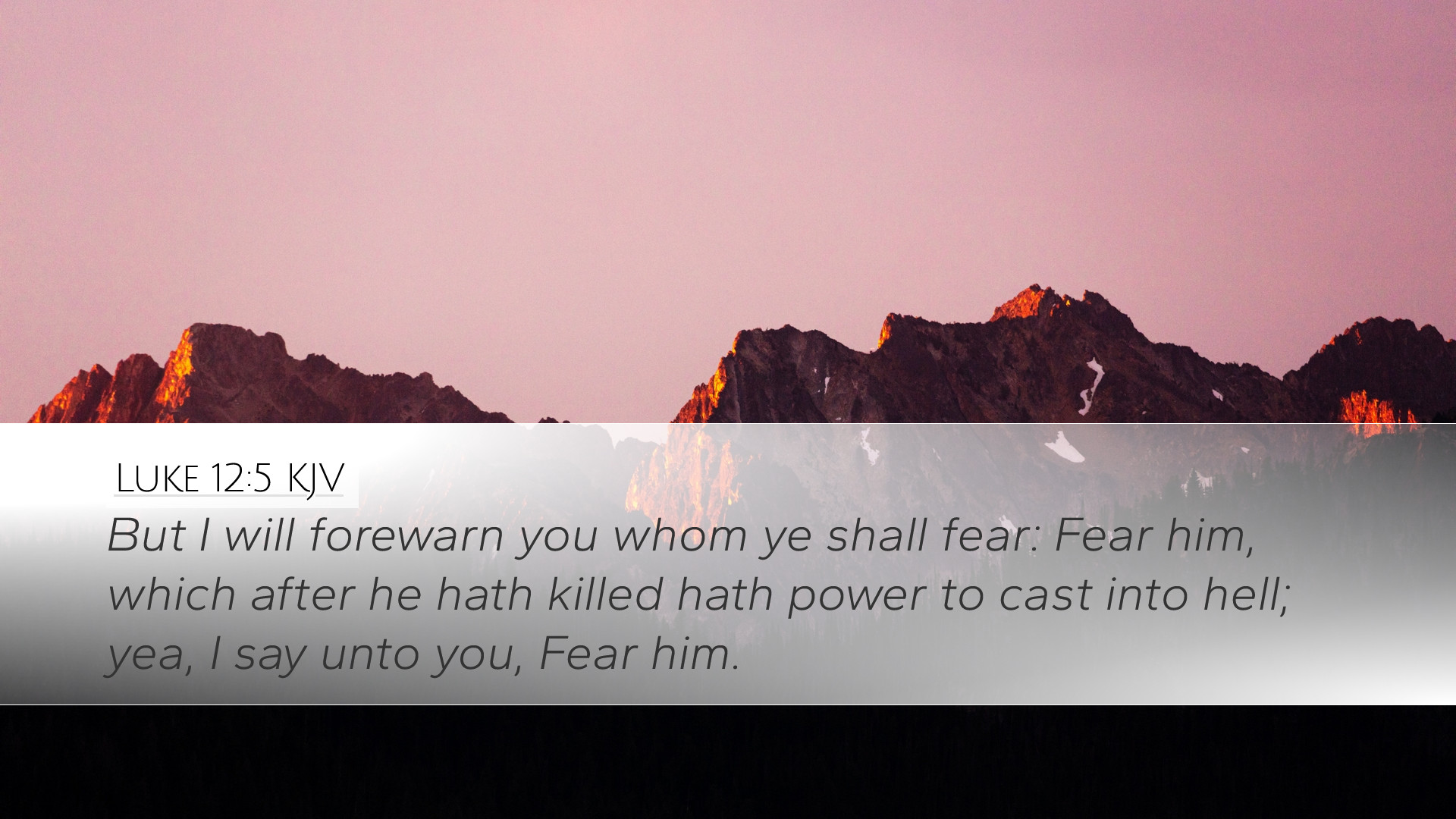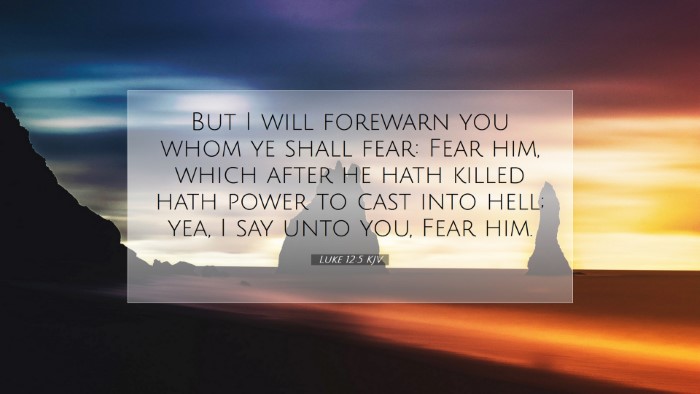Bible Commentary on Luke 12:5
Verse: "But I will show you whom you should fear: Fear Him who, after He has killed, has power to cast into hell; yes, I say to you, fear Him!" (Luke 12:5, NKJV)
Introduction
This verse presents a profound teaching from Jesus regarding the nature of fear and authority. It speaks to believers about the necessary reverence towards God as the ultimate authority over life and death. To fully appreciate this proclamation, we draw insights from various public domain commentaries, which expound on its theological implications and practical applications.
The Nature of Fear in the Christian Context
Many commentators emphasize that fear in this context does not denote a paralyzing dread but rather a respectful reverence for God’s sovereignty. Albert Barnes notes that there are two types of fear experienced by humanity: one that leads to despair and another that leads to a righteous acknowledgement of God's omnipotence.
- Reverent Fear: This is the fear that acknowledges God's power and justice. Adam Clarke suggests that such fear draws individuals closer to God, cultivating worship and obedience.
- Disrespectful Fear: Conversely, fearing human repercussions can lead to anxiety and distract from God’s ultimate authority. Matthew Henry warns against a misplaced fear that prioritizes earthly consequences over divine judgment.
The Authority of God
In this verse, Jesus highlights God's dominion over life and death. Matthew Henry elaborates on the idea that God is not only the giver of life but also holds the keys to eternal destiny. It is this authority that demands a higher respect than that of any earthly power.
Luke 12:5 asserts the idea that once physical life is concluded, what remains is the potential for spiritual judgment. Clarke explains that such a perspective underlines the transient nature of earthly existence and the profound significance of living in alignment with God's will.
The Power to Cast into Hell
The phrase "the power to cast into hell" serves as a significant theological point. It affirms the reality of hell as a serious consequence of sin and rebellion against God. Barnes remarks that this aspect of God's authority serves to remind believers of the grave implications their choices hold, urging them to seek righteousness.
Application for Believers
Pastors, students, and theologians should reflect on how this verse informs their understanding of evangelism, discipleship, and personal accountability.
- Encouragement in Discipleship: This scripture can encourage believers to have a proper perspective on fear—leading them to a deeper devotion rather than a retreat from God.
- Boldness in Faith: Recognizing that the fear of God leads to wisdom (Proverbs 9:10) empowers Christians to proclaim the gospel unashamedly.
God's Love and Justice
The balance between God's love and justice is essential in understanding this verse. While He has the ultimate authority and the ability to execute judgment, He is also a God of mercy. Clarke emphasizes that the same God who warns of hell also provides a way of escape through faith in Jesus Christ. This duality should compel believers to a life of gratitude and holiness.
Conclusion
Luke 12:5 serves as a powerful reminder of the weighty responsibility resting upon us as followers of Christ. It calls for a reassessment of what we fear and whom we serve. The commentaries reflect a call to prioritize our relationship with God over societal pressures and fears.
As we learn to fear Him, we find the true essence of freedom in our faith—standing firm against worldly anxieties, living out our call with courage, and presenting the truth of the gospel with the hope of eternal life through Christ alone.


